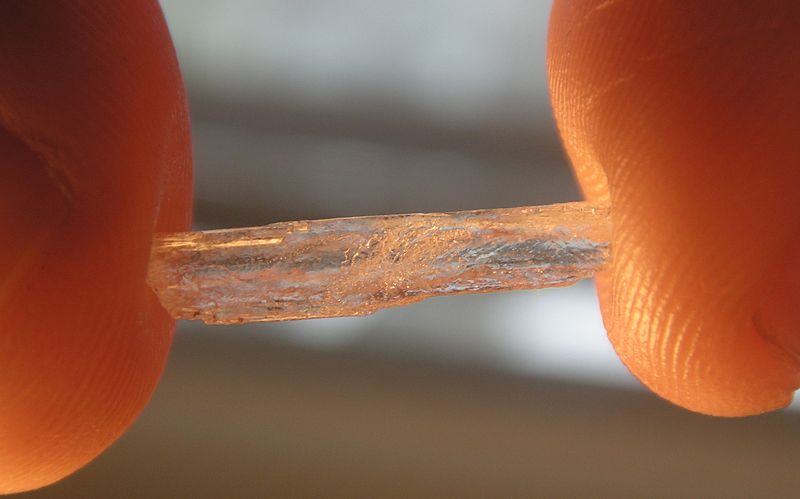Meth-Addicted Moms Have Babies With Odd Stress Response

Get the world’s most fascinating discoveries delivered straight to your inbox.
You are now subscribed
Your newsletter sign-up was successful
Want to add more newsletters?

Delivered Daily
Daily Newsletter
Sign up for the latest discoveries, groundbreaking research and fascinating breakthroughs that impact you and the wider world direct to your inbox.

Once a week
Life's Little Mysteries
Feed your curiosity with an exclusive mystery every week, solved with science and delivered direct to your inbox before it's seen anywhere else.

Once a week
How It Works
Sign up to our free science & technology newsletter for your weekly fix of fascinating articles, quick quizzes, amazing images, and more

Delivered daily
Space.com Newsletter
Breaking space news, the latest updates on rocket launches, skywatching events and more!

Once a month
Watch This Space
Sign up to our monthly entertainment newsletter to keep up with all our coverage of the latest sci-fi and space movies, tv shows, games and books.

Once a week
Night Sky This Week
Discover this week's must-see night sky events, moon phases, and stunning astrophotos. Sign up for our skywatching newsletter and explore the universe with us!
Join the club
Get full access to premium articles, exclusive features and a growing list of member rewards.
Toddlers exposed to methamphetamines in the womb have abnormal responses to stress, but only when they also live in unstable home environments.
Unfortunately for kids, prenatal drug use and unstable homes often go hand-in-hand. In a new study, 68 percent of kids whose mothers used meth during pregnancy showed a blunted response to stressful situations.
"The lack of hormonal stress response that we observed in these children has serious implications, such as a greater risk for depression, anxiety and attention-deficit/hyperactivity disorder," study researcher Namik Kirlic, a doctoral student at the University of Tulsa, said in a statement.
Meth is a stimulant that can give users a sense of euphoria. But the drug is highly addictive and toxic to brain cells. Babies born to meth-addicted moms show stunted growth, and they may have behavioral problems that stretch well into childhood, studies show.
Meth's stimulation of the nervous system may also affect a fetus' developing stress response. Kirlic and his colleagues observed 123 2-year-olds, whose mothers had used meth during pregnancy, playing with their moms in a room. They then had the mothers leave the toddler alone in the room for a maximum of two minutes, a situation that provokes short-term stress in young kids. Before and after the experiment, the researchers took saliva samples to measure the toddlers' levels of the stress hormone cortisol.
The majority of the children showed a lower-than-typical level of cortisol production in response to the stressful moments alone, the researchers report in the May issue of the Journal of Studies on Alcohol and Drugs. This sort of dulled cortisol response has previously been linked to substance abuse, delinquency and even asthma in young people. [5 Ways Your Cells Handle Stress]
But the child's environment was key, the researchers found. Kids who were exposed to meth but whose families were now stable did not show the blunted response. Kids still in stressful homes did.
Get the world’s most fascinating discoveries delivered straight to your inbox.
"It's not the meth alone," study researcher Barry Lester, director of the Brown Center for Children at Risk of the Women & Infants Hospital of Rhode Island, said in a statement. "It's the combination of meth exposure and adversity after birth. We see other things coming into play — the mother's psychological health, alcohol use, exposure to violence at home or in the community. The postnatal environment is hugely important," added Lester, who is also at Brown's The Warren Alpert Medical School.
The study highlights two messages, Lester said: First, kids whose mom did meth during pregnancy can overcome the damage, provided they get support and security. Second, that support and security need to come early.
"Unfortunately," Lester said, "we are not doing a good job of getting to these children during early infancy."
Follow Stephanie Pappas on Twitter and Google+. Follow us @livescience, Facebook & Google+. Original article on LiveScience.com

Stephanie Pappas is a contributing writer for Live Science, covering topics ranging from geoscience to archaeology to the human brain and behavior. She was previously a senior writer for Live Science but is now a freelancer based in Denver, Colorado, and regularly contributes to Scientific American and The Monitor, the monthly magazine of the American Psychological Association. Stephanie received a bachelor's degree in psychology from the University of South Carolina and a graduate certificate in science communication from the University of California, Santa Cruz.
 Live Science Plus
Live Science Plus










